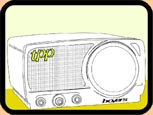
 |
|
In this email interview, Sara Jane Boyers, author of TEEN POWER POLITICS: MAKE YOURSELF HEARD grabbed a minute from her writing schedule in Santa Monica, California, to answer some questions from Cat Bauer, who lives in Venice, Italy and is the author of the new Winslow Press book, HARLEY, LIKE A PERSON Cat: First I just want to say that, Sara, I love your book. I think it's about time someone sat down and just talked to teens to find out exactly what they think about the way the country is being run. As someone who writes for this group of people herself, I find that they are more than willing to open up and give us their input. I like to think that as writers, we're sort of like megaphones, allowing one generation to holler to another. Sara: I recently heard someone at a writer's conference say they were "overwhelmed" by the prospect of talking to teens. And I thought, "Wow!". Teens have shown me that they're at that fabulous point in their lives where they have questions, incredible energy and resolve. For this book and for the appearances I do, I've spoken to teens throughout the country (my own teens and their friends included) and although some of them have seen far more than others, they all know what to do to get things done. They just need to be heard. Cat: I know you've got a couple of other books where you were the force creating the whole project, but TEEN POWER POLITICS is the first book totally in your own words, isn't it? Cat: Did I ever tell you that the last time I was in the States, my doctor had LIFE DOESN'T FRIGHTEN ME on the window in his office? Sara: It's in lots of interesting places. There's a message in there that art and poetry appeal reaches us viscerally and individually and is incapable of categorization. So many see what they need to see in the book. That's the power of expression. Cat: Something I find fascinating about you -- and I'm sure your readers will too -- didn't you used to work in the music industry? Sara: Yup. I used to be a music industry attorney and personal talent manager, if you can imagine, who represented singers and bands and worked in major music companies like MCA/Universal. I'm also an occasional television producer with some good ideas that have been in "development", but nothing produced yet (this is Hollywood after all!). But I chucked it all to spend more time with my children and write, although my kids say they'd rather have the free music and concert tickets. A plus however: I can listen to (and sometimes know about) anything and everything they play ... and as loud as they want it. Cat: Did your own teens help you at all with the book? Sara: It was because of my son's questions after a recent election where less than 50% voted and the 18-24 year-old vote was almost minimal that I first thought about writing TEEN POWER POLITICS. My son, my daughter and their friends have contributed at all stages: ensuring I include issues concerning them, acting as my sounding boards to see if what I've written sounds like something they'd want to read, commenting on the design. I get statements like, 'You put that in and NO ONE's going to read it". And they're usually right and I make changes. It's a working process but how else can one write? Cat: So, what made you decide to write a book about teens and politics? Sara: I think my generation does a lot of complaining about the youth of America and how they have no serious interest in what's happening in the country. But I feel the responsibility goes both ways -- what are we, as adults, doing to keep politics interesting and alive? What are we doing to make youth feel like they're part of the process, that they actually have a voice? Even I, too, needed an attitude adjustment, so I decided to talk to the teens themselves and see where their heads were at when it comes to how the country is being run. I wanted to give them ideas and a place to express their opinions. Youth helped me with research, inspired me, and talked to me about their hopes and dreams for the future. I'm hoping that with my book, and through this website, that young people will finally have a place to tell their stories and share ideas. Now it's up to us to listen! Cat: It seems like teen politics is getting a lot of press lately. What makes your book different? Sara: I think the big difference is that mine includes the first step: activation itself. There are books out there that appeal to those kids who are already motivated, but what about the majority who, because of the way politics and activism has been presented to them, feel powerless and disconnected? I want to reach teens who have never given politics a second thought, and don't realize how much power they really do have. I start by concentrating on issues that affect youth -- real problems that teens have today. Not enough text books. No after school activities. Not being allowed to carry a backpack. Dress codes and curfews, even at the malls! Racial profiling. Censorship. Juvenile justice. "Little" stuff like that. For all of us, not only teens, we need that sense of how we're being impacted to engage ourselves! And the truth is that it is time in this country -- politically, economically and socially -- that we take back control or, at least educated control. And that also is unique to my book. The sections on elections and media literacy, as well as a quickie on the history of voting, put activism in perspective -- to help teens work with others knowledgeably and pragmatically to get what they want done. You've first got to know the system to work within it or to change it. Cat: So, you can use TEEN POWER POLITICS as sort of a jumping off point? Sara: Exactly. I actually send readers on to other books in the field through the extensive resource list of organizations and websites in TEEN POWER POLITICS and through my own website with more current links. I am a firm believer in using as much information, guides and tools as one can! My book is a first step and general tool for activism, so that my readers can go on to identify their concern(s), learn best how to do something about it, alone or with a group, and make change. The more in this area the better. Just start with TEEN POWER POLITICS! Cat: Speaking of not being allowed to carry a backpack, you brought up some things in Chapter 1 that I found shocking. You say there's not enough books to go around. How are you supposed to study? And there's no after school activities? When I was in high school we had lockers for all our textbooks, a book for every person in every class in every subject, about ten different sports you could participate in -- everything from football to chess -- plus tons of clubs and other activities. And I went to an ordinary public high school. Is all this really gone? And if so, where did it go? Sara: It's gone the way of the budget. It's gone the way that we have abdicated responsibility for the people and issues we care about. When music and art are cut from a school program as a "luxury", who was there to protest? It took years before conditions got so bad that a major coalition of civil rights groups, acting on behalf of 70 high school students, sued the State of California this Spring 2000. They said that the state didn't provide even the "bare minimums necessary for education": no or outdated textbooks, few qualified teachers, cramped classrooms, bathrooms and classrooms reeking of unhealthy. Places where "students can't learn and teachers can't teach". What are we asking of our kids today when we don't even provide them with the beginnings? And for those in disadvantaged neighborhoods, the stories are even more dramatic and we are failing even more. It's more than time we all clean up this mess. And lockers are a whole other issue! Cat: I loved the story you included about Sarah Swagart and the skateboarders. Not only did Sarah find a safe place for skateboarders to enjoy their sport, she and her group, "Nobody Special," changed the entire image of skateboarders in their community. It really brought home that things CAN be accomplished if you're passionate about it. Any other examples of teens who had a direct impact on their community? Sara: The stories abound in TEEN POWER POLITICS and out there in the world. Teens who alone have enabled a major city to institute curbside recycling. Teens who have made their rural community's interests know to the world. Teens who have brought hope and economic opportunity to the homeless. Teens who are fighting to preserve their cultural heritage against economic developers. We don't hear these stories in the news as much as we hear the aberrant ones. We just need to look around us and see what's truly out there. Cat: You say there's about 40 MILLION young people between the ages of 10 and 19 in America right now. Those are huge numbers, though kids might not realize how much power they represent. Do you think the voting age should be lowered? Sara: There are already organizations trying to do just that! It's an interesting issue and one I'd like to see further explored. I do feel that with the vote also comes education - learning what exercising that powerful responsibility and right really is. Then it's most effective for our present and our future. Let's see this come about - and I think it will as youth becomes more involved - and then the issue of even more entering the voting pool will become more relevant. It's also important to remember that change is made in many ways. The vote is just one, although one that should never be avoided. But with people power, organization and holding others who represent us responsible while we ourselves stay responsible, a lot can get done. Cat: It sounds this project has kept you pretty busy. What do you do in your spare time? Sara: Spare time? Hah! I love being around my teens when they let me and I go out and pet horses, photograph and look at art whenever I can. And... I'm online a lot! Cat: What are you reading right now? Sara: About five books, several newspapers, literary and art magazines and who knows what else. I like HARLEY, LIKE A PERSON a lot ... or is that a shameless plug for you??? Cat: And your next project? What have you got coming up? Sara: I'm working on several books for teens, more art and poetry projects and one or two books using my own photographs and writing. I am thinking hard and actually starting to research something on juvenile justice as I am truly concerned with the way in which we are trying to solve our social problems by incarcerating our teens. And I intend to continue writing, speaking and being active in youth advocacy. Cat: If you could sum up into one sentence what you want youth to come away with after reading your book, what would it be? Sara: Here's three short sentences (You should know that a writer can never do just "one" sentence!): Understand your power and intelligence. Ask questions and think about the answers. Make change as there is no doubt that you can.
Read some of Sara's articles at: chickclick.com (September 2000) Book Links (November 2000) Check out her author's site (including school & library info) at:
|
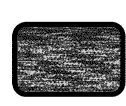 |
 |
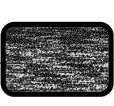 |
 |
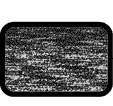 |
 |
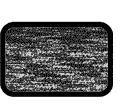 |